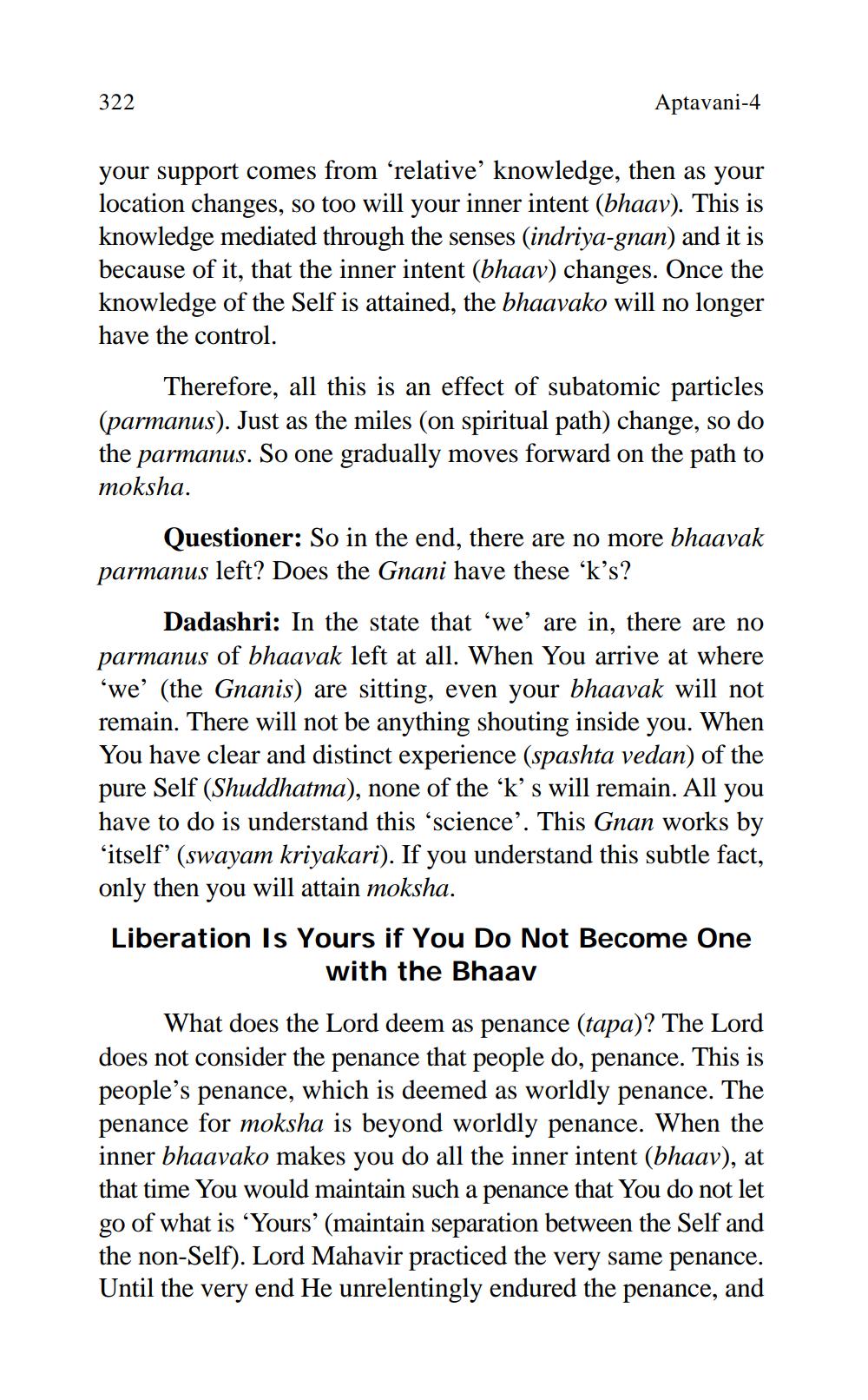________________
322
Aptavani-4
your support comes from ‘relative' knowledge, then as your location changes, so too will your inner intent (bhaav). This is knowledge mediated through the senses (indriya-gnan) and it is because of it, that the inner intent (bhaav) changes. Once the knowledge of the Self is attained, the bhaavako will no longer have the control.
Therefore, all this is an effect of subatomic particles (parmanus). Just as the miles (on spiritual path) change, so do the parmanus. So one gradually moves forward on the path to moksha.
Questioner: So in the end, there are no more bhaavak parmanus left? Does the Gnani have these “k's?
Dadashri: In the state that 'we are in, there are no parmanus of bhaavak left at all. When You arrive at where 'we' (the Gnanis) are sitting, even your bhaavak will not remain. There will not be anything shouting inside you. When You have clear and distinct experience (spashta vedan) of the pure Self (Shuddhatma), none of the ‘k's will remain. All you have to do is understand this 'science'. This Gnan works by ‘itself' (swayam kriyakari). If you understand this subtle fact, only then you will attain moksha. Liberation Is Yours if You Do Not Become One
with the Bhaav What does the Lord deem as penance (tapa)? The Lord does not consider the penance that people do, penance. This is people's penance, which is deemed as worldly penance. The penance for moksha is beyond worldly penance. When the inner bhaavako makes you do all the inner intent (bhaav), at that time you would maintain such a penance that you do not let go of what is ‘Yours' (maintain separation between the Self and the non-Self). Lord Mahavir practiced the very same penance. Until the very end He unrelentingly endured the penance, and




